
笔者想请大家回答一个问题:在学英语的时候遇到的最困难的事情是什么呢?让我来猜一猜,是不是记单词?笔者在多年英语教学过程中观察发现,学生们最想要逃避的就是记单词。每次听写前都要临时抱佛脚,运用他们较好的短期记忆力快速记住单词的拼写,避免在听写的过程中“丢人”。但作为一名英语教学者,从不会觉得坐在面前写不出单词的学生不努力,而是会思考是否这个学生记单词的方法需要改进?又或者生词是不是太多了?因此笔者想从基础的点出发,详细讲解词汇的基本变化:名词是如何转变成形容词的,意在使学生掌握最基本的词汇变化规律,从而在积累词汇的时候更高效,更轻松。此外,请大家一定结合context(背景)加深自己对单词的理解,故笔者提供了大量例子供英语学习者理解。
在《如何快速扩充词汇:由名词变身为形容词的常见十则变化规律详述(上)》中咱们学习了“名词+-y构成形容词”以及“名词+-ly构成形容词”的两种变化规律,在这篇我们将接着学习另外两种常见的变化规律:
3.名词+-al构成形容词:
拉丁后缀-al 有两种属性:一是加在名词或名词性词根后面,构成形容词,表示属于…的、具有…性质的、如…的[1]。二是作为派生后缀加在动词后面构成抽象名词,表示行为、状况、事情[1]。请注意,-al作为形容词后缀时,有-ial,-ical,-ual等音变异体。
Skillful Listening & Speaking 1留预二级课本中Unit 1中Vocabulary Skill提到这一知识点。
具体词汇和例子(不同于上篇的内容,这一构词法中列举了大量高频词伙,请大家结合词伙来理解这些形容词的含义,并练习将这些高频词伙运用到写作和口语中)如下:
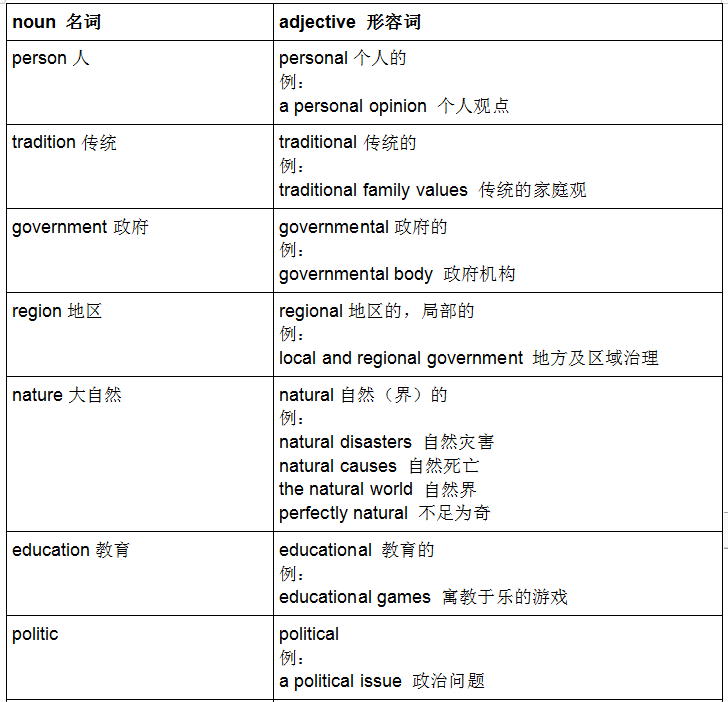
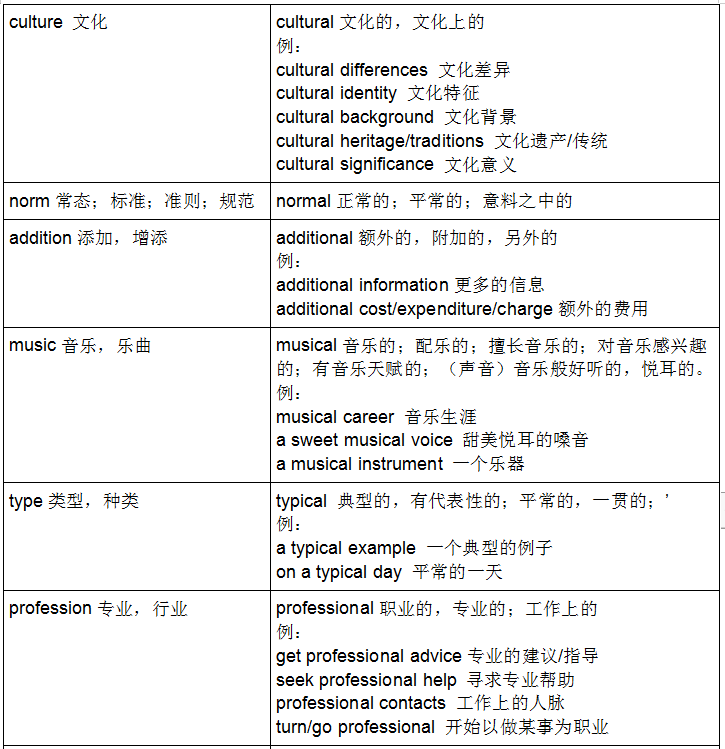
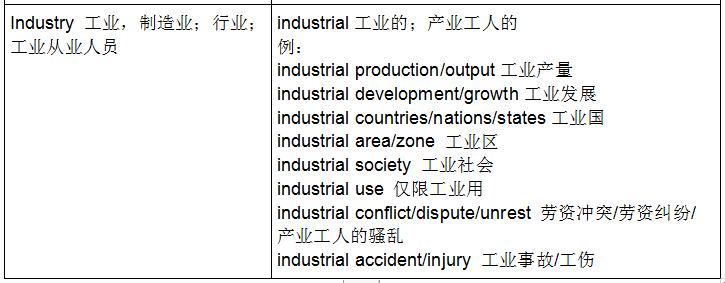
请阅读下面这段描述(摘自English Vocabulary In Use):
“Shichi-Go-San(meaning7,5,3)is an annual ceremony in Japan for three- and seven-year-old girls, and three-and five-year-old boys. It is on November 15, but it is not a national holiday, so people often have it on the nearest weekend. Seven, five and three are seen as important years in the growth of a child, and the numbers also have cultural significance because odd numbers (1,3,5,7,9, etc.) are lucky in Japan. This is one of the special days when the older boys and girls are allowed to wear traditional clothes: a kimono for girls and hakama trousers for boys. Now it is quite normal for children t wear western-style clothes at this ceremony. The children visit a shrine and are then given special sweets called Chitose-Ame by their parents.”[2]
4.名词+-ful/less 构成形容词
形容词和名词后缀,形容词后缀-ful意为"full of, having the quality of"(如fearful=full of fearful)。多加在名词之后表示“富有…的、充满…的、具有…性质的、易于…的、可…的”[1]的意思,是最常用的形容词后缀。此外,加在名词之后,表示充满时的量[1]。反义词后缀是-less, 意为“without”(如fearless= without fear),也就是“无…的”、“不…的”[1]。
Skillful Listening and Speaking 2能力英语三级课本中Unit7中Vocabulary Skill提到这一知识点。有些单词后可加两个后缀中的任一个,其它的单词只可加其中的一个后缀[3]。
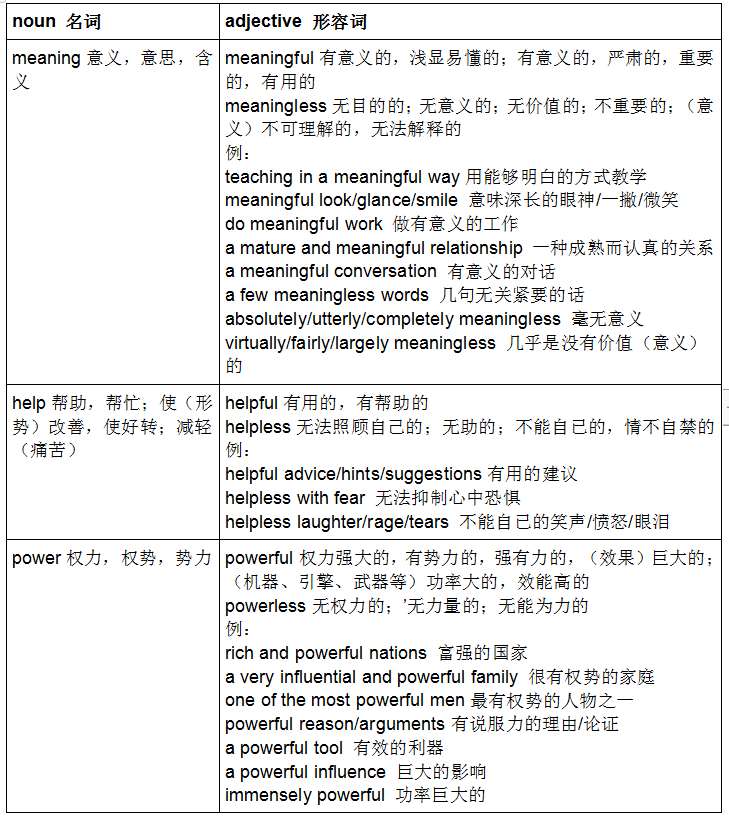
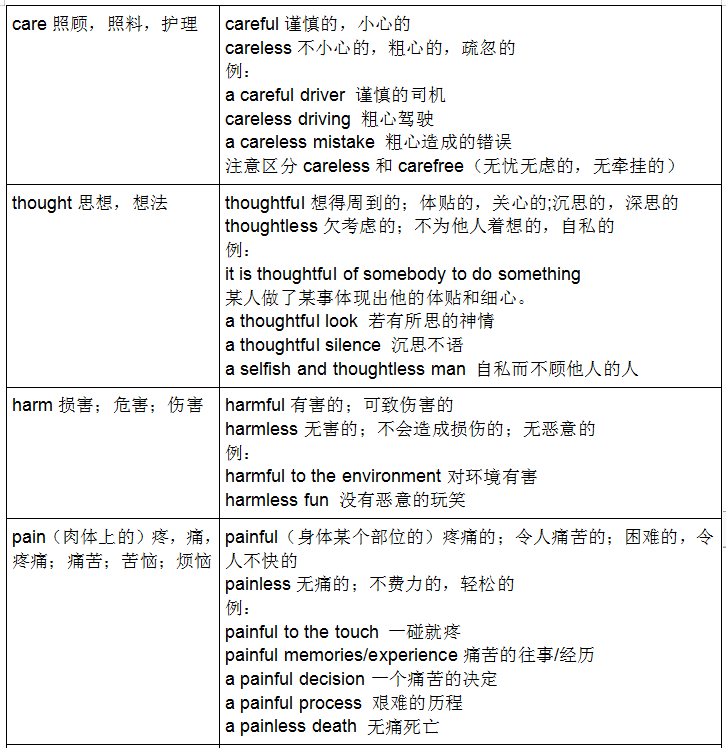
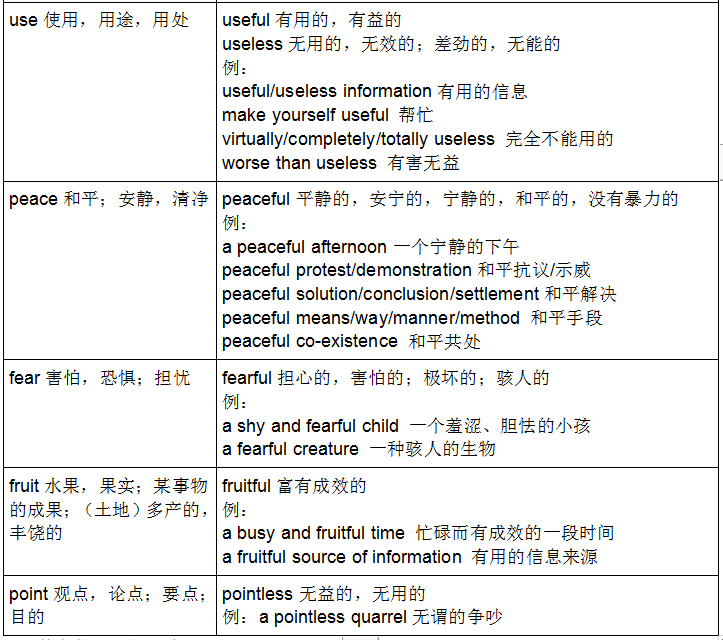
其它的一些例子有:skill-skillful;truth-truthful;-forget-forgetful;shame-shameful;color-colorful;beauty-beautiful; stress-stressful; success-successful; thank-thankful; wonder-wonderful; home-homeless; job-jobless; price-priceless; sleep-sleepless; worth-worthless等等,这里就不一一列举了。
请看下面这段关于phobia的对话(截取自Skillful Listening and Speaking 2留预三级课本中Unit7中Listening 2):
“Dr: I had a patient recently that had a terrible phobia of elevators. Let’s call her Maggie. One problem Maggie faced was that a recent job promotion required her to move her office from the first floor in her building up to the tenth floor. She was certain that the elevator world break while she was inside and she’d run out of air, or the elevator would fall. Her friends tried to reason with her, but it was pointless. She had a strong fear of elevators.
Host: That’s awful! So, have you treated Maggie’s problem? Were you able to find a solution?
Dr: We were successful, but it took some time. The first step was that Maggie needed to realize she needed help. Surprisingly, people are sometimes very reluctant to seek help, or don’t know where to seek help. Phobias may be painful but are almost always treatable. It’s much easier than people think. Maggie and I did some relaxation techniques together. These techniques were useful because they helped her avoid the physical symptoms. I taught her to take slow, deep breaths. Then she was able to think more rationally about the situation.”[4]
参考文献:
[1]蒋争.英语词汇的奥秘-英语单词学习手册[M].北京:中国国际广播出版社,1986.
[2] Stuart Redman.English vocabulary in use pre-intermediate and intermediate[M]. Cambridge: Cambridge University Press,2017.
[3] Lida Baker,Steven Gershon,Dorothy E.Zemach.Skillful Listening & Speaking 1[M].London: Macmillan Education,2012.
[4] David Bohlke,Robyn Brinks Lockwood, Dorothy E.Zemach. Skillful Listening & Speaking 2[M]. London: Macmillan Education,2013.